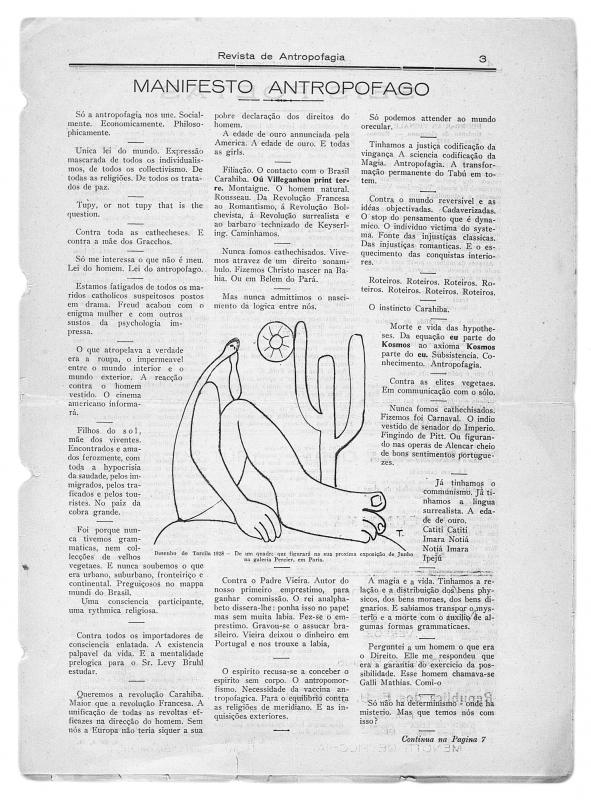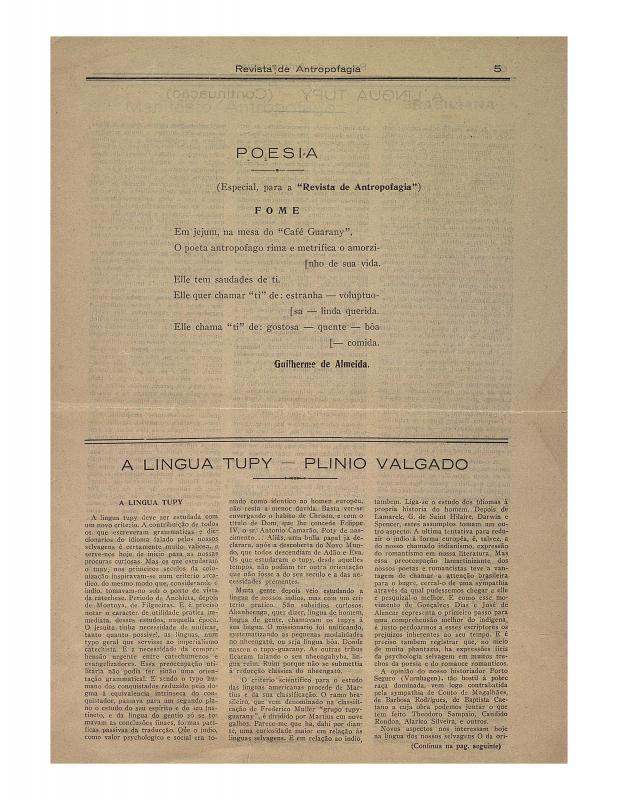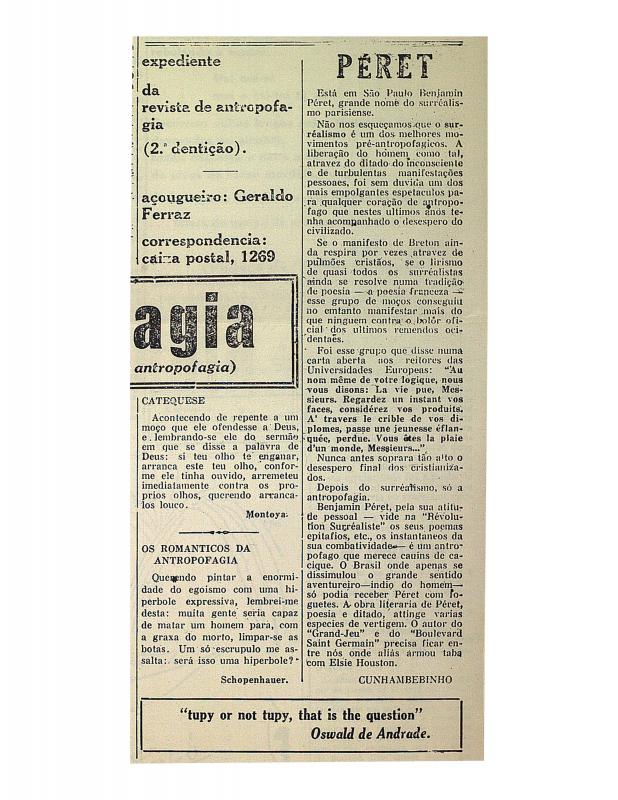Oswald de Andrade (1890–1954) was the creative and intellectual pillar that supported the founding of the so-called Movimiento Antropófago; he contributed the cornerstone of this Brazilian modernist movement’s ideas and theories: the “Manifesto antropófago,” which was written in 1928, four years after its closest forerunner, the “Manifiesto Pau-Brasil.”
This document’s poetic style and content suggest that it might have been written by Oswald de Andrade, although it is hard to be sure. There is an epigraph signed by “The Author,” and the article ends with the signature of “(a) Oswaldo Costa.” Oswaldo Costa is mentioned three times in a statement written by Tarsila do Amaral about the anthropophagus movement, and it could well have been a pseudonym used by Andrade. [See the ICAA digital archive: “Pintura Pau-Brasil e antropofagia” (doc. no. 784978)].
The Revista de Antropofagia appeared at the same time as Oswald de Andrade’s “Manifesto Antropófago” (doc. no. 771303). The minimalist poet Murilo Mendes (1901–1975) contributed to the magazine during its first period, when it was edited by Alcântara Machado (1901–1935) and Raul Bopp (1898–1984), who published ten issues between May 1928 and February 1929. The following article appeared in those issues: by Plínio Salgado, “A língua tupy” (doc. no. 784419). The magazine’s second period (called the Segunda Dentición) was edited by Geraldo Ferraz and published in the newspaper Diário de São Paulo. The article “Péret” (doc. no. 1110367) was from that later period, and was signed, ironically, Cunhabebinho (another one of Oswald de Andrade’s pseudonyms).




